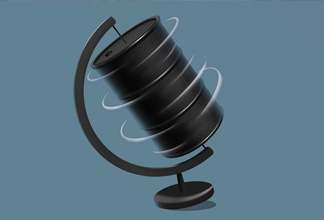How to Make the Most of Your Tax Refund
Written by The Inspired Investor Team
Published on April 22, 2022
minute read
Share:
Last Updated: March 2024
If you’re expecting to receive a tax refund this spring, you’ve got some decisions ahead of you. While nobody would blame you for using some (or all) of your tax refund to splurge on something special, here are a few other options to consider that may instead help you get closer to your financial goals, whatever they may be.
Pay down debt
With inflation and interest rates where they are, it might be a good time to consider reducing amounts owing on your debts — think mortgage, HELOC or personal line of credit. That way, you could curtail your debt carrying costs before those higher payments start to eat into your available investment dollars. Paying off any high-interest debt, such as outstanding credit card balances, could also save you in interest charges, which could in turn open up more money in your budget.
Start or rebuild an emergency fund
The pandemic has shown us how important it is to plan for the unexpected — and how volatile markets can be. Saving a few months' worth of expenses in an emergency fund can prevent the need to liquidate investments at a moment's notice when calamity strikes — which isn't ideal if markets are down and you're forced to sell at a loss.
Invest in a registered account
If you haven't already maxed out your available contribution room, you might consider investing your tax refund in a Tax-Free Savings Account (TFSA), Registered Retirement Savings Plan (RRSP), a First Home Savings Account (FHSA) or Registered Education Savings Plan (RESP), which each offer certain tax advantages. With a TFSA, for example, you pay no taxes on investment income and capital gains earned on qualified investments. In the case of an RRSP contribution, you get a tax deduction to apply when doing your taxes next year. With an FHSA, you pay no taxes on investment income and capital gains earned on qualified investments, similar to a TFSA and get tax deductions on your contributions similar to an RRSP. And if you decide on an RESP, the Canadian government offers 20 per cent of the value of your annual contribution in the form of a grant, up to a maximum of $500 a year and a lifetime limit of $7,200 per child
Make your home more energy efficient
By using your tax refund to replace outdated energy-hog appliances, buy a more efficient furnace, or install better insulation or new windows and doors that prevent air leakage, you could lower your gas, electricity or oil bill. Those savings, over time, could then find a home in your investment portfolio.
Upgrade your skills
If you've been considering an educational or training program to boost your skills, your tax refund could help pay for it. You'll not only come away with a stronger resume that may help grow your career and long-term income prospects, but you might also be able to claim a credit on next year's taxes.
Support a cause
If one of your financial goals is to give back, you may want to consider gifting your tax refund to a worthy cause. Any donations you make to a registered charity could be claimed as a charitable tax credit on your next tax return.
RBC Direct Investing Inc. and Royal Bank of Canada are separate corporate entities which are affiliated. RBC Direct Investing Inc. is a wholly owned subsidiary of Royal Bank of Canada and is a Member of the Investment Industry Regulatory Organization of Canada and the Canadian Investor Protection Fund. Royal Bank of Canada and certain of its issuers are related to RBC Direct Investing Inc. RBC Direct Investing Inc. does not provide investment advice or recommendations regarding the purchase or sale of any securities. Investors are responsible for their own investment decisions. RBC Direct Investing is a business name used by RBC Direct Investing Inc. ® / ™ Trademark(s) of Royal Bank of Canada. RBC and Royal Bank are registered trademarks of Royal Bank of Canada. Used under licence.
© Royal Bank of Canada 2022.
Any information, opinions or views provided in this document, including hyperlinks to the RBC Direct Investing Inc. website or the websites of its affiliates or third parties, are for your general information only, and are not intended to provide legal, investment, financial, accounting, tax or other professional advice. While information presented is believed to be factual and current, its accuracy is not guaranteed and it should not be regarded as a complete analysis of the subjects discussed. All expressions of opinion reflect the judgment of the author(s) as of the date of publication and are subject to change. No endorsement of any third parties or their advice, opinions, information, products or services is expressly given or implied by RBC Direct Investing Inc. or its affiliates. You should consult with your advisor before taking any action based upon the information contained in this document.
Furthermore, the products, services and securities referred to in this publication are only available in Canada and other jurisdictions where they may be legally offered for sale. If you are not currently resident of Canada, you should not access the information available on the RBC Direct Investing Inc. website.
Explore More

What Investors Can Learn from Hockey Star and RBC Olympian Sarah Nurse
Nurse's path to the podium reveals how preparation, planning and practice can turn potential into a golden opportunity
minute read

Crude Questions? A Look at Canada’s Oil Economy
What you need to know about Canada’s oil industry
minute read

How Inflation-Proof Are Your Investments?
Why inflation still matters – and how to stay ahead of it
minute read
Inspired Investor brings you personal stories, timely information and expert insights to empower your investment decisions. Visit About Us to find out more.







